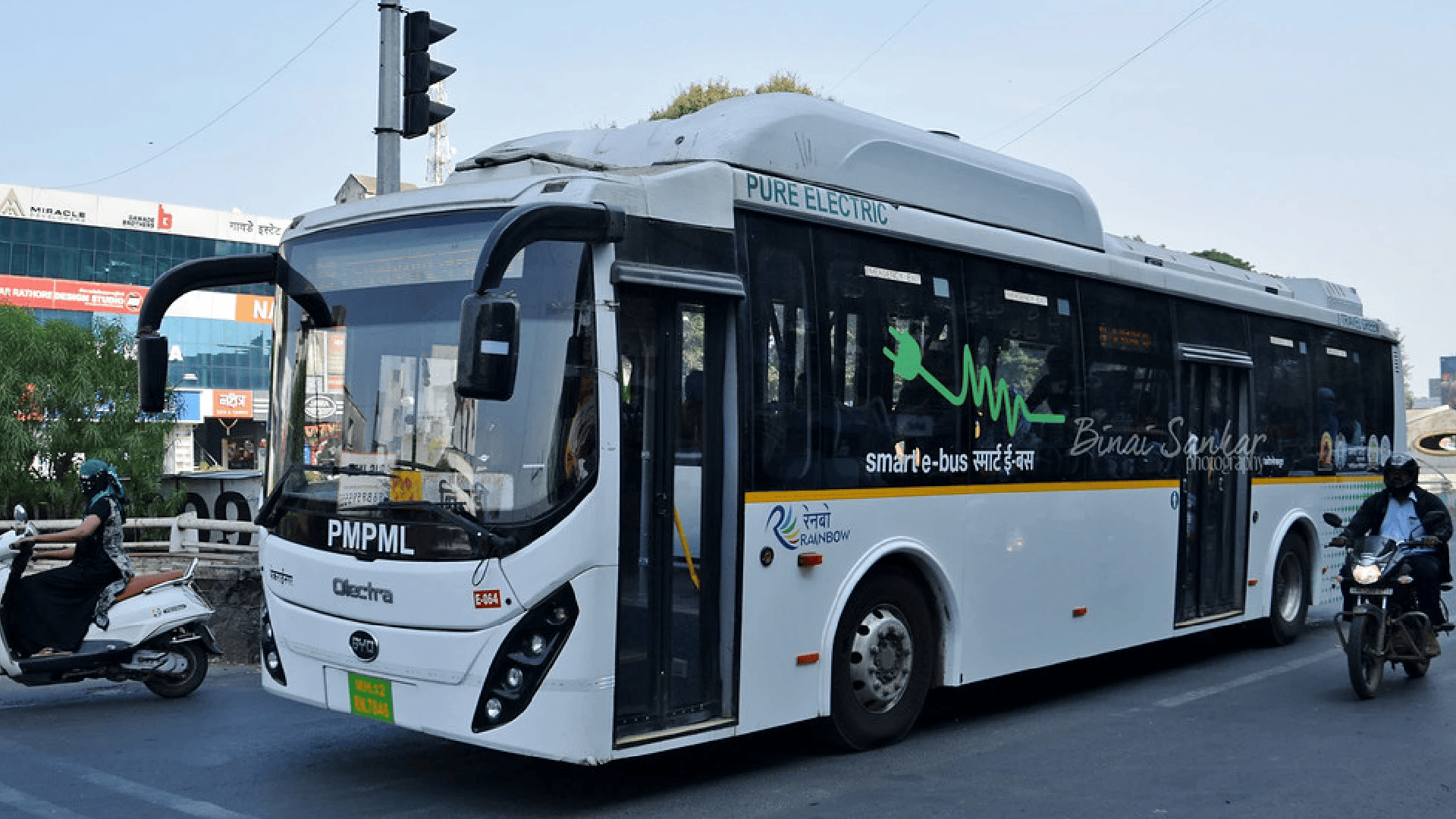Pune, a city grappling with public transport challenges, has been notably absent from the recent allocation of electric buses under the Union Ministry of Heavy Industries’ PM E-Drive scheme.
This exclusion has raised concerns about the city’s commitment to sustainable urban mobility and its ability to meet the growing transportation demands of its residents. The PM E-Drive scheme, aimed at promoting electric mobility, has allocated a total of 10,000 electric buses to various cities across India. Bengaluru leads with 4,500 buses, followed by Delhi with 2,800, Hyderabad with 2,000, Ahmedabad with 1,000, and Surat with 600. Pune, however, has not been allotted any electric buses, despite its pressing need for an expanded and modernised public transport system.
A study by the Institute for Transportation and Development Policy (ITDP) in January highlighted that Pune had only half the buses it required. According to the institute, Pune needs 4,500 buses, but the city’s fleet has remained around 2,000 for several years. The Pune Metropolitan Region’s Comprehensive Mobility Plan (CMP) developed by Pune Metro and Assystem paints an even bleaker picture. The plan states that based on Ministry of Housing and Urban Affairs guidelines of 60 buses per lakh population, the Pune Mahanagar Parivahan Mahamandal Ltd (PMPML) required 6,228 buses by 2024, indicating a shortfall of approximately 4,000 buses. The situation is further exacerbated by the operational inefficiencies within the existing fleet. PMPML’s fleet has remained relatively constant, with 1,959 buses in April 2022, 2,083 in February 2023, 2,009 in February 2024, and 1,916 in February 2025.
Moreover, a significant portion of the fleet is often out of service due to maintenance issues. Over 15% of PMPML buses are perpetually under maintenance, with 300-400 buses consistently off the roads for repairs. Despite these challenges, Pune’s proposal for 1,000 electric buses has yet to receive approval. PMPML officials have stated that the proposal has been submitted to the authorities, and they are awaiting a response. However, there is no clear timeline for when the buses will be procured or delivered. The absence of electric buses in Pune’s public transport system is a missed opportunity to promote sustainable urban mobility. Electric buses not only reduce greenhouse gas emissions but also contribute to improved air quality and reduced noise pollution. Additionally, they offer a more cost-effective and efficient mode of public transportation in the long run.
As other cities advance their electric mobility initiatives, Pune risks falling behind in the race towards sustainable urban development. The city’s exclusion from the PM E-Drive scheme underscores the need for a more proactive approach in addressing its public transport challenges. Stakeholders, including urban planners, policymakers, and citizens, must collaborate to ensure that Pune’s public transport system meets the needs of its growing population and aligns with national sustainability goals. In conclusion, Pune’s absence from the recent e-bus allocation highlights the urgent need for comprehensive planning and action to revitalise its public transport system. By prioritising sustainable and inclusive mobility solutions, Pune can pave the way for a greener and more equitable urban future.
Also Read :Toll-Free Travel for EVs on Mumbai-Pune and Samruddhi Expressways


